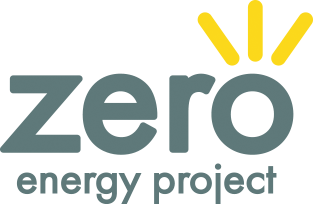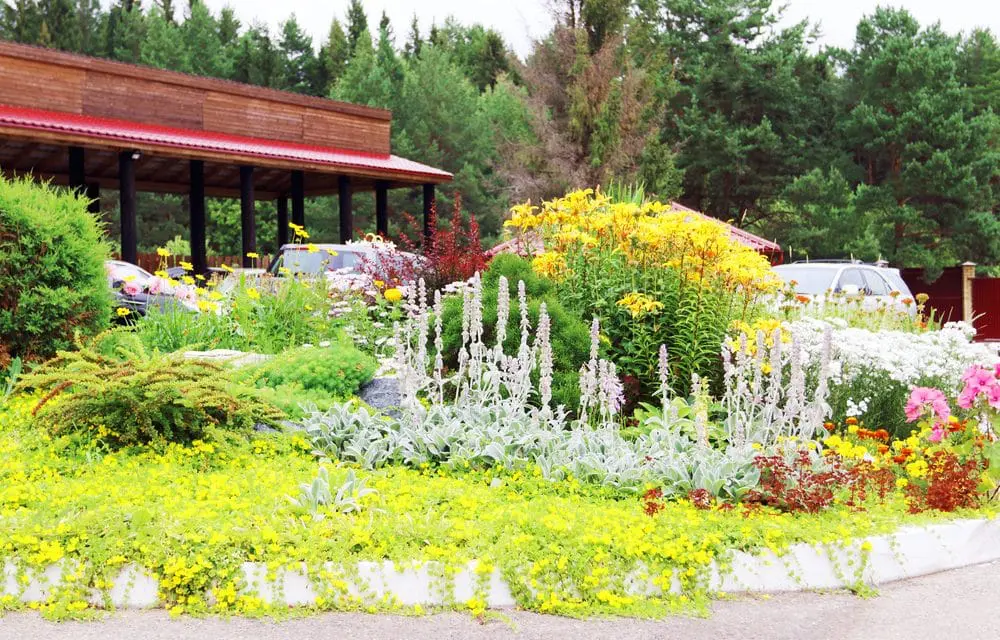There’s a reason that a key component of green building is water efficiency and reuse. Nationwide water use statistics are nothing short of staggering. According to the U.S. Environmental Protection Agency (EPA), the average American uses 82 gallons of water per day. Nationwide, landscape irrigation and other outdoor uses account for nearly one-third of all residential water use, average, totaling nearly 8 billion gallons per day. And some experts estimate that as much as 50 percent of water used for irrigation is wasted due to evaporation, wind, or runoff caused by inefficient irrigation methods and systems. That means billions of gallons of clean, fresh water is wasted daily, due to ineffective irrigation systems.
You may be thinking, “there’s got to be a better way. How can I reduce my home’s outdoor water use?” You’re in luck — there’s a very simple, easy, and inexpensive way to do so. Greywater systems redirect greywater (water used for washing) from going into the sewer system and into an irrigation system instead. For any eco-friendly home, recycling usable water is definitely something to seriously consider. Installing a greywater system means you’ll conserve water and reduce your monthly utility bills, all while providing valuable nutrients to your landscape and garden.
Greywater FAQs
What is greywater?
Greywater is the name given to water that’s already been used for washing purposes, like laundry, handwashing, showering, and bathing (NOT water that’s been in contact with feces, like from the toilet or washing diapers). Greywater systems, then, are used to redirect and recycle this “once-used” water for other purposes. Greywater may look unclean (it does have the characteristic “grey” tint, after all), but it’s perfectly suitable for watering the garden, irrigating your trees, and more.
Is greywater safe for plants?
For the purposes greywater typically serves, like irrigating landscaping, ornamental gardens, or trees, greywater is safe (if you use the right cleaners and body care products) — and can even be beneficial. Greywater contains traces of dirt, food, grease, and hair, which become pollutants when released into bodies of water. But to plants, these things are nutrients and valuable fertilizers. This makes greywater an even better option for watering and irrigation than regular water!
(Note: If you want to use greywater for your vegetable garden, just be sure it doesn’t touch any edible parts of the plant.)
And don’t worry, most greywater systems come with a simple 3-way valve to easily toggle between the greywater system and the sewer or septic system. You’ll still have the option to drain anything you wouldn’t want to water your plants with, while recycling valuable water on a daily basis.
What about water from dishwashers or my kitchen sink?
Typically, water from these sources is not reused as greywater because many of the detergents used to wash dishes contain ingredients that are harmful to plants. If you are able to find products free of salts and boron, you can reuse this source of water.
Can I reuse greywater if I have a water softener?
Again, because of the salts used for most water softeners, this water is not suitable for plants. Consider looking into a potassium softener instead of a sodium softener.
What soaps and products can I use with my greywater system?
Plant-friendly cleaning products are key when reusing greywater. Here’s what the pros at Greywater Action recommend:
“All products should be biodegradable and non-toxic. In addition, they should be low in salt (sodium) and boron (borax), two common ingredients that are non-toxic to people but are harmful to plants and/or the soil. Chlorine bleach is also harmful to plants and should be diverted with any other harmful products to the sewer or septic by switching the 3-way valve. Hydrogen peroxide bleaches are less harmful and can be used instead of chlorine. Another consideration with soaps and products is their affect on the pH of the water. While many soaps do not change the pH, some do. In general, liquid soaps do not change the pH, while bar soaps make the water very basic (opposite of acidic). Certain acid loving plants may not be happy with this kind of water. If you’re uncertain if the pH is being affected choose plants that are not acid loving to irrigate. Acid-loving plants include ferns, rhododendrons, and blueberries.”
What are the benefits of greywater reuse?
Aside from the obvious benefits of saving a ton of water (and money on your water bill), reusing your greywater keeps it out of the sewer or septic system, reducing the chance that it will pollute local rivers and lakes. Additionally, greywater can support local wildlife with food and shelter. It’s a reliable source water for backyard ecosystems.
Greywater system… that sounds complicated!

A laundry-to-landscape greywater system. Image courtesy of GreywaterAction.org via CleanWaterComponents.
Actually, greywater systems can be incredibly simple. In fact, Greywater Action suggests keeping greywater systems as simple as possible. Take the laundry-to-landscape system, for example; without altering household plumbing one bit, this gravity-based system redirects water from the washing machine into a basic yard irrigation system. No pumps, no machinery, and little maintenance. Other simple systems make use of greywater from showers and sinks, letting gravity work its magic to make the water flow naturally. Only those with an uphill-sloped yard, or obstacles to cross (patios, driveways, and the like) will really need to consider implementing a mechanical pump.
Aren’t greywater systems expensive?
This one’s another surprising “no” — any system can be costly depending on the complexity, but greywater systems are typically very affordable. Back to the laundry-to-landscape example from above: Supplies for this simple system will cost around $150-300. And because it’s such a basic system and requires only basic plumbing work, self-installation is definitely an option. If you’d rather have someone install the system for you, you can expect to tack on $500-$1,500 in labor costs, depending on how advanced of a system you have in mind.
The bottom line: for all their eco-friendly benefits, some kinds of greywater systems come with a totally digestible price tag. Other types and complex systems are much more costly.
What if my household produces more greywater than I need for irrigation?
In most climates (especially dry and arid climates) it’d be difficult to have an overabundance of greywater. You’d be surprised how much water your soil can soak up! But in more humid and wet regions, many homeowners turn to constructed wetlands to help absorb some of that water. Wetlands are nature’s water purifiers, removing nutrients and other pollutants from stormwater and wastewater. Constructed wetlands are like backyard, human-made wetlands used to treat greywater destined for disposal, or simply to create a backyard wildlife habitat.
More Greywater System Guidelines from Greywater Action:
- Unlike potable freshwater from municipal supplies or wells, greywater typically includes traces of soap, detergents, hair, dirt, and food particles—alongside some chemicals and potential pathogens.
- Greywater should not be stored for more than 24 hours to prevent bacterial growth and unpleasant odors.
- To minimize human contact subsurface irrigation systems are ideal. For home vegetable gardens: don’t use greywater on root crops and ensure the edible portions of the plants do not contact greywater.
- Local regulations and guidelines for greywater reuse vary, so be sure to obtain any necessary permits.
- Clearly mark greywater systems pipes and components. Educate household members on proper handling and post signage to prevent accidental contact with the dirty water.
- Monitor your irrigation needs and shut off the system during wet or cold winters. Be sure greywater doesn’t puddle up or run off the property, as it could pollute waterways.
- Install a 3-way valve. Diverter valves switch the discharge of household water from the greywater system to the septic or sewer system when needed.
Manufactured Greywater Systems
As we mentioned before, it’s best to keep greywater systems as simple and maintenance-free as possible! But for homes with a sloped yard, or homes in frigid climates, it may be necessary to call in the professionals. Manufactured greywater systems are available for nearly any budget and any residential application.


